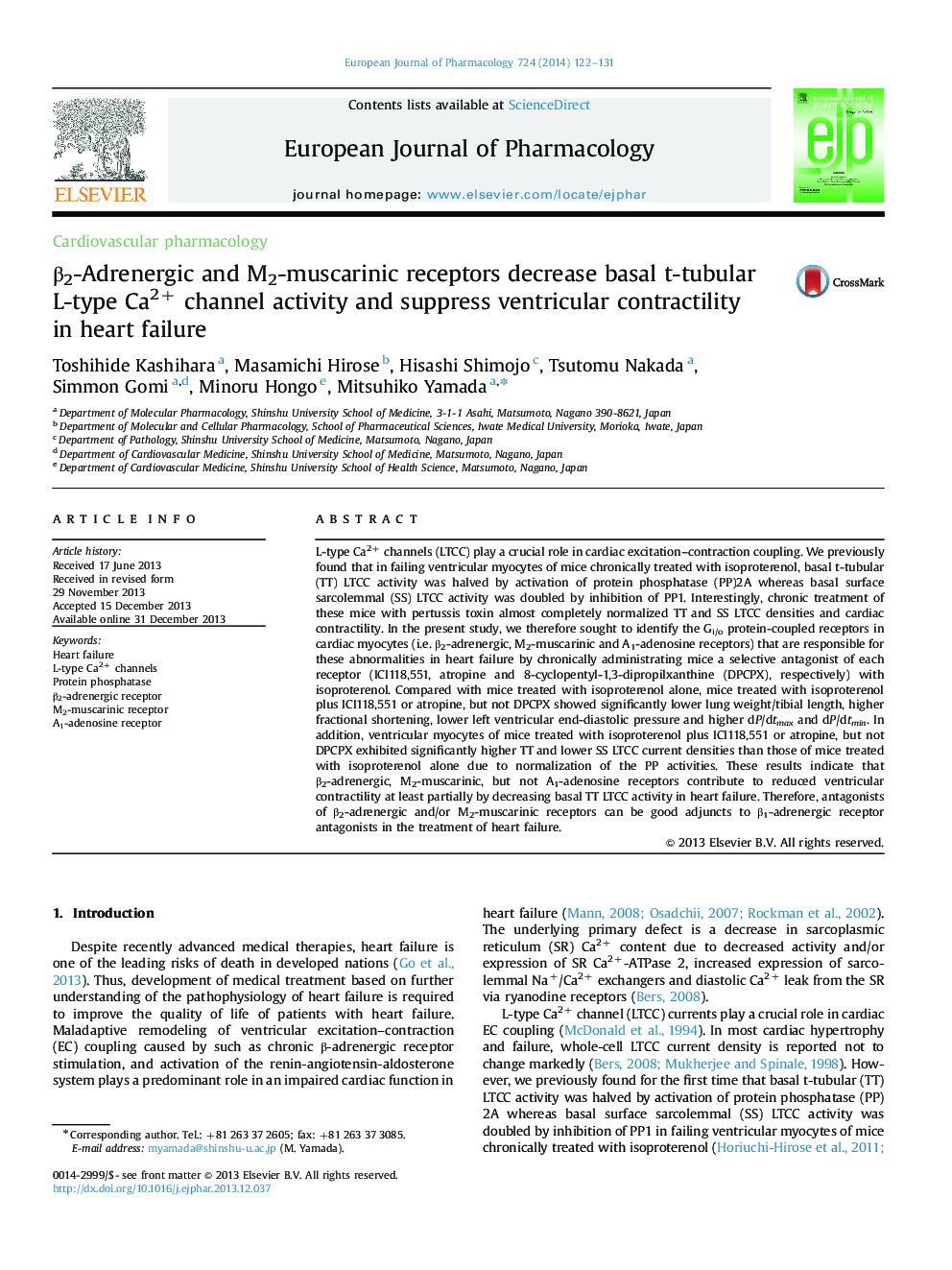| کد مقاله | کد نشریه | سال انتشار | مقاله انگلیسی | نسخه تمام متن |
|---|---|---|---|---|
| 2531823 | 1558957 | 2014 | 10 صفحه PDF | دانلود رایگان |

L-type Ca2+ channels (LTCC) play a crucial role in cardiac excitation–contraction coupling. We previously found that in failing ventricular myocytes of mice chronically treated with isoproterenol, basal t-tubular (TT) LTCC activity was halved by activation of protein phosphatase (PP)2A whereas basal surface sarcolemmal (SS) LTCC activity was doubled by inhibition of PP1. Interestingly, chronic treatment of these mice with pertussis toxin almost completely normalized TT and SS LTCC densities and cardiac contractility. In the present study, we therefore sought to identify the Gi/o protein-coupled receptors in cardiac myocytes (i.e. β2-adrenergic, M2-muscarinic and A1-adenosine receptors) that are responsible for these abnormalities in heart failure by chronically administrating mice a selective antagonist of each receptor (ICI118,551, atropine and 8-cyclopentyl-1,3-dipropilxanthine (DPCPX), respectively) with isoproterenol. Compared with mice treated with isoproterenol alone, mice treated with isoproterenol plus ICI118,551 or atropine, but not DPCPX showed significantly lower lung weight/tibial length, higher fractional shortening, lower left ventricular end-diastolic pressure and higher dP/dtmax and dP/dtmin. In addition, ventricular myocytes of mice treated with isoproterenol plus ICI118,551 or atropine, but not DPCPX exhibited significantly higher TT and lower SS LTCC current densities than those of mice treated with isoproterenol alone due to normalization of the PP activities. These results indicate that β2-adrenergic, M2-muscarinic, but not A1-adenosine receptors contribute to reduced ventricular contractility at least partially by decreasing basal TT LTCC activity in heart failure. Therefore, antagonists of β2-adrenergic and/or M2-muscarinic receptors can be good adjuncts to β1-adrenergic receptor antagonists in the treatment of heart failure.
Figure optionsDownload high-quality image (138 K)Download as PowerPoint slide
Journal: European Journal of Pharmacology - Volume 724, 5 February 2014, Pages 122–131